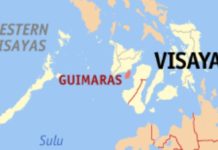ILOILO City – The battle for control over Iloilo City’s future water supply intensified during a hearing held Monday by the Sangguniang Panlungsod, as two major players — Aboitiz InfraCapital (AIC) and Metro Pacific Iloilo Water (MPIW) — laid out competing proposals for securing a bulk water supply deal from the National Irrigation Administration (NIA).
The hearing, which centered on the ongoing negotiations for the 1 CMS (cubic meter per second) water allocation from NIA, became a showcase of strategic positioning — with both companies seeking to prove that they are the most viable and sustainable partner for the city’s water needs.
“It’s like watching two suitors trying to win over the same bride,” one city official remarked after the session. “Except in this case, the bride is NIA, and the dowry is Iloilo’s access to stable water supply.”
Aboitiz: We’re not competing, we’re offering options
Speaking on behalf of AIC, Christian Batallones made it clear they are not in direct competition with other water players, but are offering a technically sound and financially viable option for Iloilo’s water future.
“We are here to collaborate with the city and NIA to provide a sustainable, long-term water solution. Our proposal is not to replace, but to complement the city’s existing water supply framework,” Batallones said.
He clarified that AIC’s proposal includes a partnership with the Iloilo City Government through a public-private partnership (PPP) framework, wherein the water permit may be assigned by NIA to the city, which in turn will partner with AIC for development.
“There is already precedent,” Batallones pointed out. “In Cavite, the NIA assigned a water permit to a local government unit. What we’re proposing is structurally the same. We are not asking NIA to directly give the water to Aboitiz — we are partnering with the city.”
Addressing cost concerns, Batallones noted that their P40-per-cubic-meter proposal is based on rigorous CapEx and OpEx calculations.
He also defended the technical feasibility of Aboitiz’s alternative plan involving desalination, countering MPIW’s claim that it was too power-intensive to be affordable.
“Yes, desalination is power-intensive,” he said. “But that’s only part of our proposal. The P40 rate is for our bulk water delivery system tapping the NIA source, not desalination. That’s an apples-to-apples comparison with MPIW’s offer.”
Metro Pacific: We don’t need another middleman
But MPIW’s Chief Operating Officer Angelo David Berba warned against AIC’s entry into Iloilo’s water supply chain, saying it would introduce a costly and unnecessary “middleman.”
“Let me make it clear,” Berba said. “The people of Iloilo do not need another private company between them and their water. Adding a middleman like AIC will only increase prices — and for what benefit?”
Berba questioned the sustainability of AIC’s proposed bulk water rate of P40 per cubic meter.
“They say it’s viable, but how?” he asked. “If desalination alone requires 3 kilowatt-hours of electricity per cubic meter, and electricity is around P9 per kilowatt-hour, that’s already P27 in energy costs alone, not including chemicals, manpower, and cost recovery.”
“How can you say P40 per cubic meter is feasible when power alone takes up most of that cost?” Berba said. “There’s no magic formula here. Either you’re subsidizing it heavily or you’re passing the real cost on to consumers.”
MPIW currently charges P22 per cubic meter for bulk water, nearly half of AIC’s proposed rate, and Berba argued that their plan to tap NIA through Metro Iloilo Water District is faster, cheaper, and backed by an existing legal framework.
“We’re already in a joint venture with Metro Iloilo Water District,” Berba said. “All we need is NIA to award that 1 CMS to the Water District. We can deliver additional water in two to three years, cheaper, faster, and without adding another layer to the system.”
Confusion over G2G vs PPP
One of the major points of contention was the nature of the proposed arrangement, whether it qualifies as a Government-to-Government (G2G) deal or a PPP.
“It’s not a G2G deal,” Berba insisted. “This is a private company (AIC) asking a local government to back its bid, but they’re still a private entity. It’s incomparable to what we’re doing through the Water District.”
Batallones, meanwhile, argued that their PPP framework still allows for a government-owned vehicle to hold the water permit, ensuring public oversight.
“There’s a ‘step-in’ provision in the contract,” he said. “If we fail to secure the permit, the Iloilo City Government can step in and hold it. That ensures continuity and public control.”
Batallones also clarified the role of the Asian Development Bank (ADB), which Berba claimed favored the MPIW-MIWD proposal.
“ADB is not the decision-maker,” Batallones explained. “They are just advisors under a transaction advisory agreement. Ultimately, it’s the NIA Board who decides whether to award the permit under a solicited or unsolicited process.”
As the Sangguniang Panlungsod session closed, city councilors agreed to continue reviewing the proposals and wait for NIA’s formal position on the matter.
Iloilo City finds itself at a crucial crossroads: choosing between two corporate giants, two contrasting approaches, and two different price points, all vying for the right to supply its future water needs.
“We’re not here to fight,” Batallones said. “We’re here to help solve a water crisis. We just hope we’re given a fair chance.”
“We’ve been serving the city since 2017 without a stable source,” Berba countered. “We’ve been waiting for this NIA water for years. We’re ready — and we’re the most direct and viable path forward.”
City to both bidders: Redundancy is our bottom line
Weighing in on the debate, Iloilo City’s Public-Private Partnership Office head, Atty. David Abraham Garcia, offered what he described as the City Government’s official stance — separate from either of the corporate proposals.
“Earlier, David Berba from Metro Pacific said that the bottom line here is they do not want another bulk water supplier to come in,” Garcia said. “I mean, Aboitiz InfraCapital wanted to strike it out, but it was already noted by the chairman of the committee.”
“Now here’s the bottom line of the city — not by Aboitiz, not by Metro Pacific — but the bottom line of the city,” he emphasized. “This is an echo from the mayor himself: We need redundancy in water. We need redundancy. There is already a lack of supply if we compare it to the extreme demand. Again, I’ll reiterate — the bottom line of the city is we need redundancy of water.”/PN





